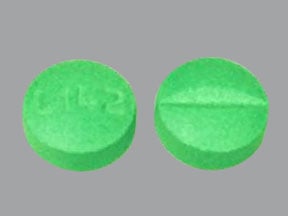My prescription
Edit
50MG, Losartan (30 Tablets)
Select pharmacy

CVS
$18.93
COUPON PRICE
Walgreens
$9.96
COUPON PRICE
Albertsons
$12.54
COUPON PRICE
Walmart
$16.05
COUPON PRICELosartan savings card
Show this card to your pharmacist
Walgreens
$9.96
BIN
ID
PCN
GRP
019876
LH830B2983
CHIPPO
LHX
Powered by
More prescriptions for hypertension
More prescriptions for hypertension
Price history for Arbli (brand) & Losartan (generic)
30 Tablets, 50MG
Average retail price for Arbli
Average retail price for Losartan
Average SaveHealth price for Losartan
Our price history data is based on aggregated prescription data collected from participating pharmacies in America. Our prescription data updates daily to reflect the latest price changes. If you notice a missing data point, it means there wasn't sufficient data available to generate a monetary value for that date.
We analyzed Losartan prices for (50MG, 30 Tablets) over the last 12 months. The average retail price was $59.98, while the average price using the SaveHealth discount card was $8.73. That's a savings of approximately 85.45% when using our Losartan coupon.
Compared to the generic version, Arbli had an average price of $707.19 over the same time period. With the SaveHealth savings card, Losartan is 98.77% cheaper on average than Arbli.
*Retail prices are based on pharmacy claims data, and may not be accurate when we don't have enough claims.
Losartan dosage forms
Dosage Quantity Price from Per unit 25MG 30 Tablets $9.71 $0.32 25MG 45 Tablets $10.06 $0.22 25MG 60 Tablets $10.41 $0.17 25MG 90 Tablets $16.92 $0.19 25MG 180 Tablets $18.83 $0.10 50MG 30 Tablets $9.96 $0.33 50MG 60 Tablets $10.92 $0.18 50MG 90 Tablets $17.83 $0.20 50MG 135 Tablets $19.25 $0.14 50MG 180 Tablets $20.66 $0.12
| Dosage | Quantity | Price from | Per unit |
|---|---|---|---|
| 25MG | 30 Tablets | $9.71 | $0.32 |
| 25MG | 45 Tablets | $10.06 | $0.22 |
| 25MG | 60 Tablets | $10.41 | $0.17 |
| 25MG | 90 Tablets | $16.92 | $0.19 |
| 25MG | 180 Tablets | $18.83 | $0.10 |
| 50MG | 30 Tablets | $9.96 | $0.33 |
| 50MG | 60 Tablets | $10.92 | $0.18 |
| 50MG | 90 Tablets | $17.83 | $0.20 |
| 50MG | 135 Tablets | $19.25 | $0.14 |
| 50MG | 180 Tablets | $20.66 | $0.12 |
| 100MG | 30 Tablets | $10.30 | $0.34 |
| 100MG | 45 Tablets | $10.95 | $0.24 |
| 100MG | 60 Tablets | $11.60 | $0.19 |
| 100MG | 90 Tablets | $18.78 | $0.21 |
| 100MG | 180 Tablets | $22.55 | $0.13 |

